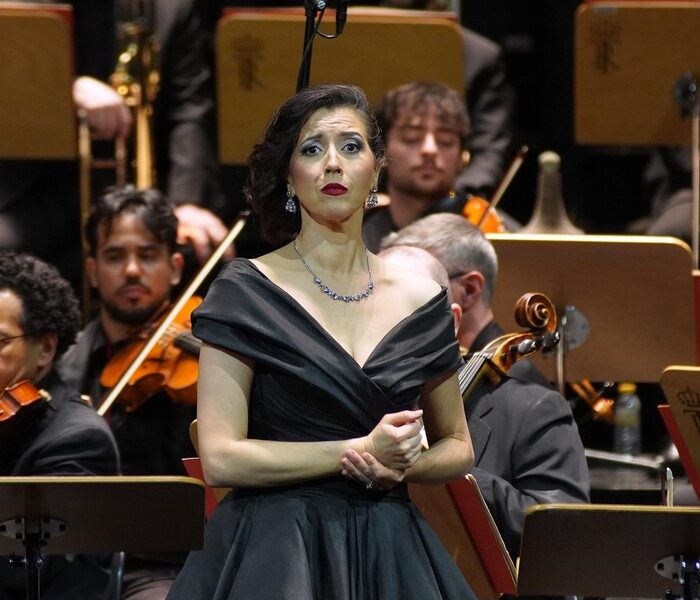
CD Review: Prima Classic’s ‘Norma’
By Bob Dieschburg(Prima Classics)
Few operas have so inextricably been linked with the name of Maria Callas as “Norma.” The first perhaps in a line of 20th century Neoclassicists, she dusted off every inch of (pseudo-)Romantic mannerism and histrionics, restituting to the playbills an uncompromisingly sympathetic interpretation of tragic grandeur, as if sprung from the pen of Jean Racine himself.
Callas’s following has been eclectic, for the most part, though Bel canto specialists like Joan Sutherland have memorably impersonated the Druid priestess. Most recently, the Latvian Marina Rebeka has laid claim to the role, incl. at the Met’s 2017 run of the Bellinian favorite. For Prima Classic, she turns the notoriously formidable score into a triumphant vision of forward thrust and vocal incandescence.
Supremely Norma
Let us be clear: Rebeka’s Norma is quite simply glorious. In exceptional voice, she sails through the part’s innumerable pitfalls with near unmatched intensity, making her character less of an introspective heroine than the dramatic precursor to Verdian protagonists the likes of Odabella, and possibly even Abigaille.
Editorial changes, though minor, reinforce the impression of Rebeka’s forward impetus. For instance, “Casta Diva” is sung in G major instead of the customary F major (as Roger Parker, in the booklet, ever so eloquently explains). This adaptation is a concession of sorts, as Rebeka’s vocal phenotype thrives on the part’s many jumps into the sonic stratosphere; but it does not naturally lend itself to the trenchant coloraturas of virtuoso performers.
The shading, consequently, is not nearly as sophisticated as Callas’s, and her preghiera’s appeal mainly derives from the sculptural elegance of her line rather than the prismatic colors of the syllables taken individually. Still, dynamic variations are subtly transitioned, and the caressingly sustained diminuendo in the cadenza’s repetition is nothing short of a godsent!
The timbre is flamboyantly lavish, and much more idiosyncratic than just a few years ago when, in Prima Classic’s recording of “La Traviata,” her positively unbridled temper would routinely manifest through a somewhat wobbly pitch. In “Norma,” by comparison, everything falls into place quite naturally. The vertiginous high notes are floated when needed (“Casta diva”), or abruptly attacked in the tercet of “Vanne, si, mi lascia, indegno.”
Dramatic Momentum
Rebeka is equally imposing in the duets. In tenor Luciano Ganci she finds a stentorian Pollione, brimmed with the excitement of a larger-than-life persona. He is indebted to a slightly epigonal fascination with del Monaco whose clarion sound puts at risk the elaboration of interpretive nuance.
More sophisticated perhaps, and akin to the example of Christa Ludwig (who never sang the part of Adalgisa!) Karine Deshayes provides a delightful counterpart to Rebeka’s enthralling priestess. She keeps a dramatic edge even at her most vulnerable (“Mira, o Norma”), while her magnetic timbre never fails to blend with the steely clarity of the remaining cast.
It falls in line with conductor John Fiore’s decidedly ingenuous verve. Fiore builds narrative momentum without having to compromise on either melody or chromatic lyricism. At worst, it feels like a slightly anticipated excursion into Verdian soundscapes (especially of the middle period); otherwise, it serves as the congenial baseline to Rebeka’s exceptionally voiced Norma, domineering, and transcending every component part of Prima Classic’s new release.


